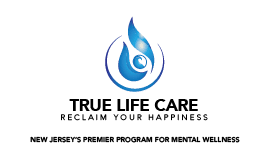Read on to learn about the different types of medication assisted treatment that are used for substance use disorders. Please contact our admission office for more informations about our different types of medication assisted treatment in New Jersey.

Medication assisted treatment (MAT) is a widely used approach to treating substance use disorders. It involves the use of medications to help people overcome addiction to opioids, alcohol, and other drugs.
Yet, all MAT options have varying benefits. It’s important to understand the different types of medication assisted treatment options that are available.
Medication assisted treatment has grown in popularity recently due to the increase of the opioid epidemic. It is often used in conjunction with other forms of treatment as well.
Varying types of medication assisted treatment can help individuals heal because it:
The types of medication assisted treatment all work to address physical and psychological aspects of substance use disorders. Therefore, MAT can help people achieve long-term recovery. It can also reduce the negative impacts of addiction on their lives and communities.
The history of medication assisted treatment dates back to the 1960s. Methadone was first used as a treatment for heroin addiction.1
Despite the multiple benefits MAT provided for individuals, there was a stigma attached to medication-assisted treatment. Some people saw it as replacing one drug with another. There have also been regulatory and financial barriers to accessing MAT.
In 2016, Congress passed the Comprehensive Addiction and Recovery Act, which included provisions to expand access to different types of MAT.2
Today, MAT is widely recognized as a critical component of addiction treatment, and it continues to evolve and improve as new medications and treatment approaches are developed.
Different types of medication assisted treatment are used to help individuals heal from substance use disorders. Here are some of the most commonly used medications in MAT:
Methadone is still one of the most common types of medication assisted treatment. Methadone is administered orally in liquid form and is given daily in a clinical setting.
It has a long half-life, which means that it stays in the body for a long time.
Methadone binds to the mu-opioid receptors in the brain. By binding to these receptors, methadone can reduce withdrawal symptoms and cravings.
Methadone may also help to reduce the stress response in the body, which can be heightened during withdrawal and can contribute to drug cravings and relapse.
Methadone is used in one of the most effective types of medication assisted treatment for opioid addiction. Multiple studies have found that people stay in methadone treatment for longer periods compared to others.3
Methadone treatment reduces the risk of overdose and other negative outcomes associated with opioid addiction.
One study found that people who received methadone treatment had a 76% reduction in the risk of overdose compared to those who did not receive medication assisted treatment.4
Buprenorphine treatment is generally taken either as a sublingual tablet or an injectable implant. The sublingual type is the most used and requires individuals to take it once a day.
The injectable implant is a newer form of the substance that provides extended-release buprenorphine for up to six months.
Buprenorphine binds to the same receptors in the brain that are activated by opioids like heroin and prescription painkillers.
This is a common mechanism for most types of medication assisted treatment. When it binds to these receptors, it helps reduce withdrawal symptoms and cravings as well.
Among the multiple types of medication assisted treatment, buprenorphine has been shown to be a highly effective medication for opioid addiction. Buprenorphine can reduce opioid use, decrease cravings, and improve treatment retention rates.
Buprenorphine has also been shown to be associated with a lower risk of overdose and other negative outcomes compared to full opioid agonists like methadone.
This is likely due in part to buprenorphine’s partial agonist properties, which produce less of an effect than full agonists and have a “ceiling effect” that limits the risk of respiratory depression and other serious side effects.5
Naltrexone is available in two forms: a daily pill and a monthly injection. Naltrexone is typically used after a person has gone through detoxification and is no longer experiencing acute withdrawal symptoms.
Naltrexone works by blocking the effects of opioids and alcohol in the brain. It does this by binding to the same receptors in the brain that are activated by opioids and alcohol, but without activating them.
By blocking these receptors, naltrexone prevents opioids and alcohol from producing their usual effects, including the pleasurable and euphoric effects that lead to addiction. It has also been shown to reduce cravings for these substances.
Research has shown that naltrexone can be effective in reducing the risk of relapse and promoting abstinence from opioids and alcohol. This is like most of the other types of medication assisted treatment.6
One of the major advantages of naltrexone is that it is not a narcotic or addictive substance, which makes it a safer choice compared to other types of medication assisted treatment.
However, it is important to note that naltrexone does not work for everyone, so it’s important to talk with your doctor first.
Acamprosate helps restore the balance of certain chemicals in the brain that are disrupted by long-term alcohol use.
It helps to restore the balance between two neurotransmitters, glutamate and gamma-aminobutyric acid (GABA). They are involved in regulating mood, anxiety, and other functions.
This can help to reduce cravings for alcohol and reduce the risk of relapse. It is one of the types of medication assisted treatment that does not involve narcotics.
Studies have shown that people who take acamprosate are more likely to remain abstinent from alcohol. They also have longer periods of abstinence than those who do not take the medication.
Acamprosate is most effective in people who have achieved initial abstinence from alcohol and need help maintaining their sobriety.7
Disulfiram works by causing unpleasant physical reactions when someone drinks alcohol while taking the medication. This is intended to deter them from continuing to drink.
Disulfiram blocks the breakdown of alcohol in the body. This leads to the buildup of a toxic compound called acetaldehyde. When someone drinks alcohol while taking disulfiram, the buildup of acetaldehyde causes a range of unpleasant physical symptoms.
These symptoms can be severe and can last for several hours, which is intended to discourage someone from continuing to drink alcohol.
Disulfiram is one of the types of medication assisted treatment that are effective in treating alcohol use disorder. It is particularly valuable in individuals who are motivated to remain abstinent.
The different types of medication assisted treatment are tailored to the individual needs and circumstances of each patient.
When selecting a medication for MAT, healthcare providers will consider the following factors:
Once a medication has been selected for MAT, the dosage and duration of treatment will be tailored to the individual patient’s needs and response to treatment.
Close monitoring and regular follow-up appointments with healthcare providers are necessary for all the types of medication assisted treatment.
Some of the common side effects of MAT include:
These side effects are usually mild and go away on their own after a short period. However, some people may experience more serious side effects, such as:
If you experience any of these side effects, you should contact your healthcare provider immediately. It’s important to remember that medications should only be taken as prescribed by a healthcare provider.
The management of side effects associated with the types of medication assisted treatment depends on the specific medication being used and the nature and severity of the side effects.
Here are some strategies for managing common side effects associated with MAT:
In some cases, the benefits of medication assisted treatment may outweigh the risks of side effects, which often depends on the severity of substance use in each individual.
However, healthcare providers will work with patients to find the most effective and tolerable medication regimen for their individual needs.
Medication assisted treatment works best when it is used with other forms of treatment, such as psychotherapy or residential treatment.
Here are some ways that MAT compares to other forms of addiction treatment:
A physician will meet with the individual to help choose the most suitable among the types of medication assisted treatment for each situation.
Yet, a combination of different treatment modalities is usually preferred and can help individuals stay healthy in the long run.
The varying types of medication assisted treatment can be utilized with other treatment methods as well, such as:
The types of medication assisted treatment improve outcomes when combined with other treatments. This addresses many factors that contribute to addiction, using a holistic treatment approach.
Medication-assisted treatment can also be used alongside other treatment options such as a partial hospitalization program (PHP) and intensive outpatient program (IOP) to provide a comprehensive and effective treatment plan.
By managing the physical symptoms of addiction, MAT can also help individuals stay engaged in their treatment program and improve their chances of long-term recovery. The combination of medication and therapy addresses both the physical and psychological aspects of addiction, providing individuals with the support they need to overcome their addiction.
Overall, MAT can be an effective component of a comprehensive treatment plan that includes other evidence-based therapies like CBT and family therapy to help individuals achieve better health outcomes.

At True Life Care Mental Health, recovery is possible for anyone struggling with opioid or alcohol addiction.
Our comprehensive medication assisted treatment program has helped many individuals achieve long-term recovery. Our team creates an individualized treatment plan that fits your unique needs.
We provide top-tier care in a structured yet comfortable environment. Our supportive team is passionate about helping individuals heal and also providing education about the recovery process. We work to provide holistic care options that can work alongside the types of medication assisted treatment we offer as well.
We also begin aftercare treatment for individuals a few weeks before discharge. This ensures a smooth transition and continued support.
True Life Care Mental Health is the place for anyone in the recovery community. If you or a loved one is struggling with substance use disorder, contact us today to get more informations about our different types of medication assisted treatment in New Jersey.

Here at True Life Care, we believe healing is a journey and we are here to support you every step of the way. Our goal is to empower you to take control of your mental health and live your best life. We are honored to be a part of your journey and look forward to your success!


True Life Care Mental Health New Jersey. Copyright 2023. All Rights Reserved.